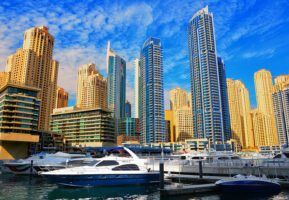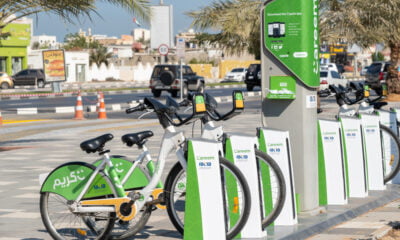

Energy
Leading cities around the World join forces to improve energy efficiency
Green Building Councils are working with leading cities around the world to dramatically ramp up energy efficiency within buildings, under a new partnership between the World Green Building Council (WorldGBC) and the World Resources Institute-led Building Efficiency Accelerator (BEA).
Green Building Councils in Colombia, the United Arab Emirates, Poland and South Africa will work with Mayors and staff in the cities of Bogota, Dubai, Warsaw and Tshwane, respectively, under the BEA in a bid to double the rate of energy efficiency by 2030. They will help cities to define the best action they can take to make efficiency improvements and receive market buy-in from those in the sector who will help to deliver these energy savings.
This work is being undertaken as part of the BEA, a public-private partnership of cities, businesses and organisations which aims to improve energy efficiency in buildings. The BEA is one of six accelerators under Sustainable Energy for All (SE4All), an initiative led by the United Nations Secretary-General, and is funded by the Global Environment Facility (GEF).
As one of the larger delivery partners under the BEA, WorldGBC and the participating Green Building Councils are turning climate finance into concrete, timely and measurable action in cities in the wake of COP21. This includes Green Building Councils providing direct support to the city governments mentioned above, while WorldGBC will primarily share resources and build capacity around the value of green building certification programmes which can operate at a national but also local level.
Announcing the partnership at the Green Building Council of South Africa’s annual convention in Johannesburg, Terri Wills, CEO of the World Green Building Council, said: “Cities and the buildings which make them up consume around 75 per cent of global energy, putting them at the coal face of our fight against climate change.
“But whilst they are a major consumer of energy, cities also have huge potential to dramatically reduce energy use, with buildings offering one of the most effective ways to do so. Through collaboration with cities, our Green Building Councils will provide on-the-ground expertise to help realise this opportunity.”
Jennifer Layke, Director, Building Efficiency Initiative, WRI Ross Center for Sustainable Cities, World Resources Institute, added: “Cities are powerful leaders: as owners, investors and regulators, they shape the sustainability of our future. Buildings that are efficient improve the productivity of both people and energy systems.
“By joining forces, the WorldGBC and the Building Efficiency Accelerator support the success of policy and project action taken by all cities: those that are inspirational examples and those that aspire to do much more. Working in partnership, WRI and WorldGBC bring more knowledge and resources to help BEA partner cities.”
By joining forces, the WorldGBC and the Building Efficiency Accelerator support the success of policy and project action taken by all cities
His Excellency Ahmed Butti Al Muhairbi, Secretary General of the Dubai Supreme Council of Energy (DSCE), commented: “In line with the Dubai Integrated Energy strategy 2050, which aims to reduce 30 per cent of the energy demand by 2030 as well as the demand side management programmes including building retrofit, the Building Efficiency Accelerator is an important programme for the Emirate of Dubai, particularly in energy security.
“We are pleased to join the Building Efficiency Accelerator, which will help to foster a culture of efficiency in existing and new buildings which allows us to see the best practices and benefits from other cities’ experiences to ensure a sustainable environment for future generations.”
Reducing energy in buildings is essential if the world is to avoid dangerous climate change. Energy used in buildings often accounts for half of all carbon emissions of some cities, while buildings in some larger cities can be responsible for up to 80 per cent of emissions. Given that two thirds of the world’s population are expected to live in cities by 2050, this places a further demand for buildings that are energy efficient and that enable a high quality of life.
Brian Wilkinson, CEO of the Green Building Council of South Africa, said: “We value our strong working relationships with a number of cities across South Africa. When the City of Tshwane expressed an interest to us and WRI to join the Building Efficiency Accelerator, we didn’t hesitate to offer our expertise.
“Helping the city to establish a policy or programme that will make a meaningful impact on the energy efficiency of its buildings is fundamental to our mission, and we’re delighted to be involved in this partnership through WorldGBC.”
Further Green Building Councils are expected to join the BEA through WorldGBC as the partnership develops.


 Environment12 months ago
Environment12 months agoAre Polymer Banknotes: an Eco-Friendly Trend or a Groundswell?

 Features11 months ago
Features11 months agoEco-Friendly Cryptocurrencies: Sustainable Investment Choices

 Features12 months ago
Features12 months agoEco-Friendly Crypto Traders Must Find the Right Exchange

 Energy11 months ago
Energy11 months agoThe Growing Role of Solar Panels in Ireland’s Energy Future





























